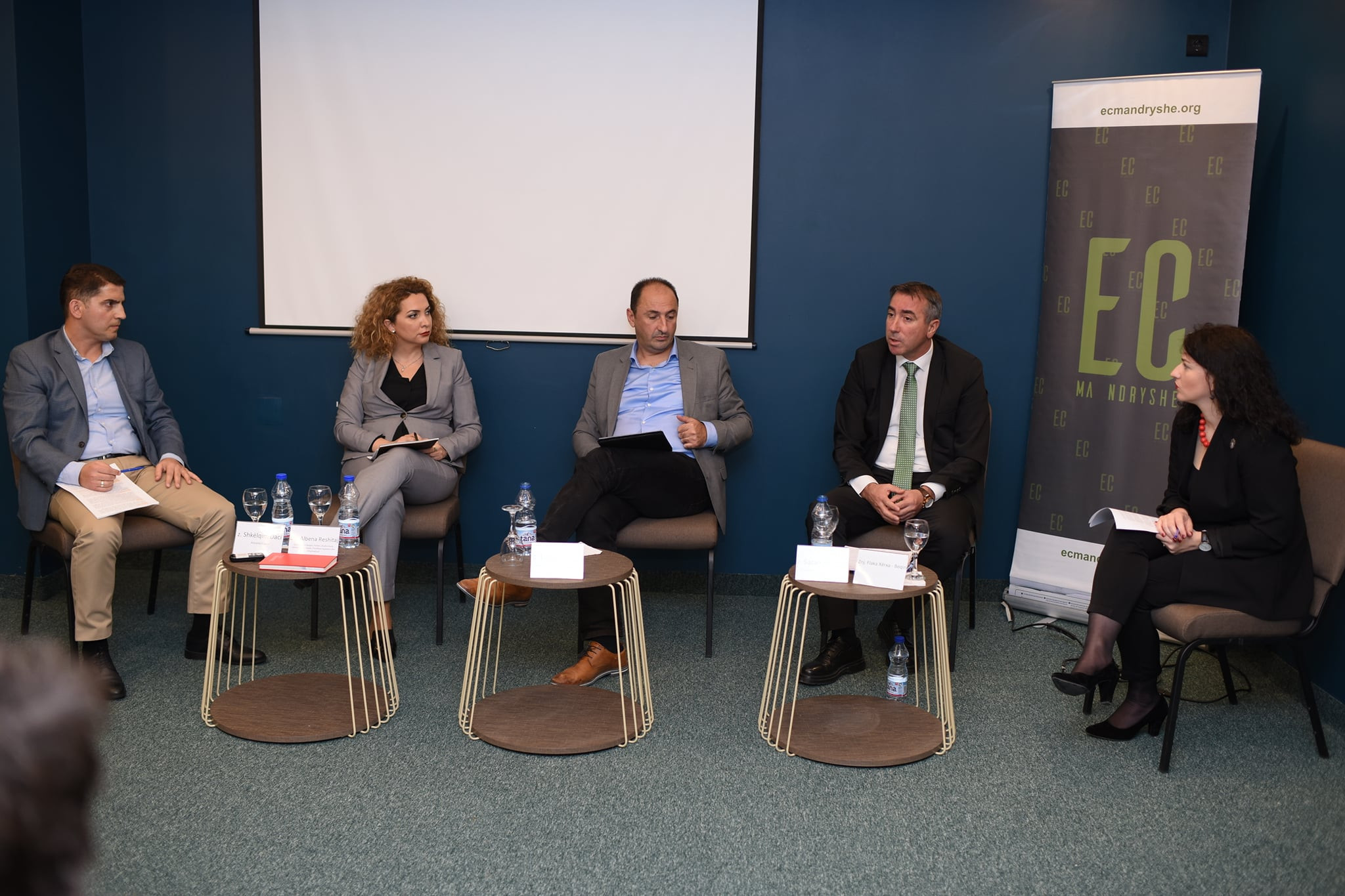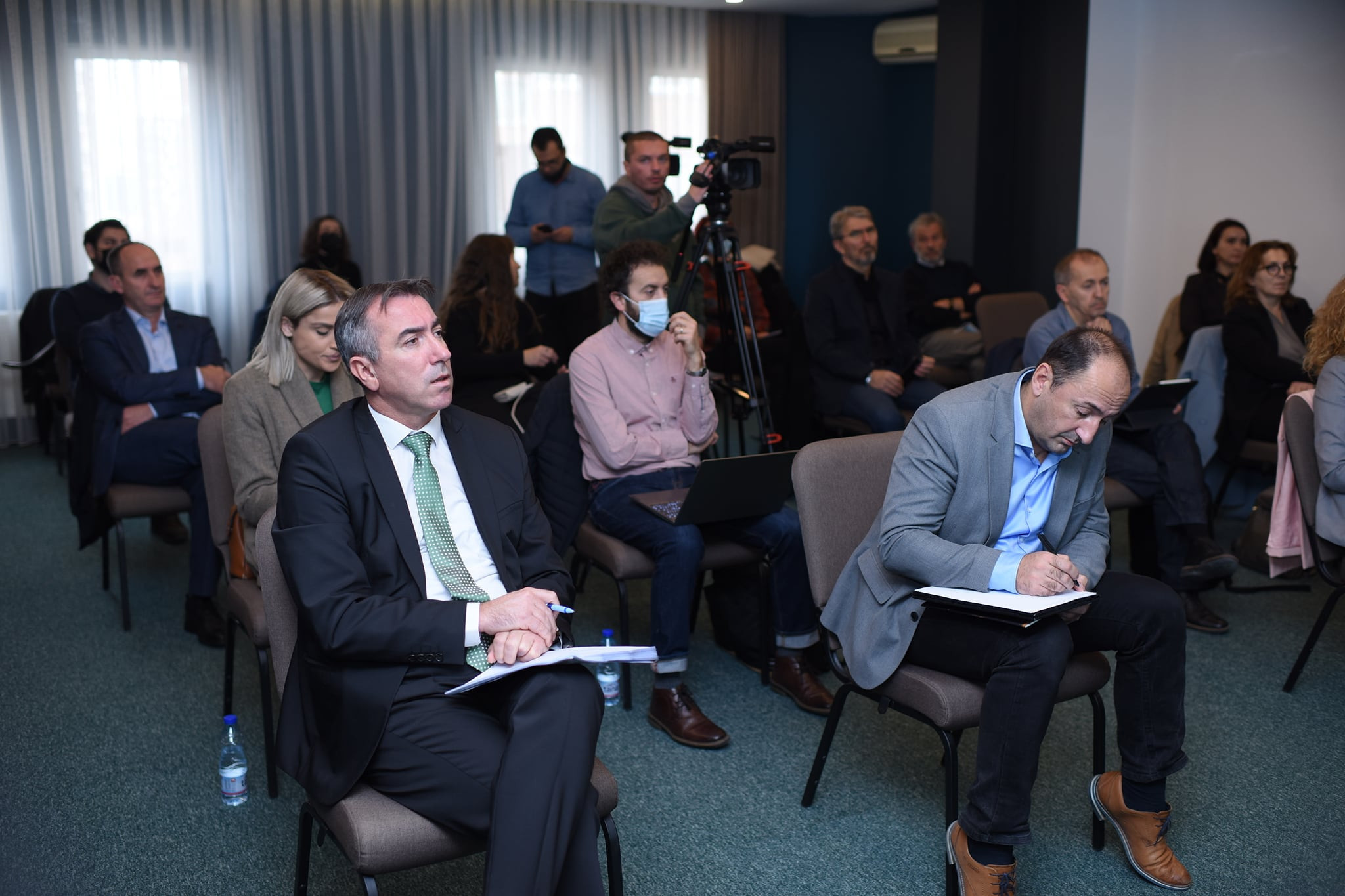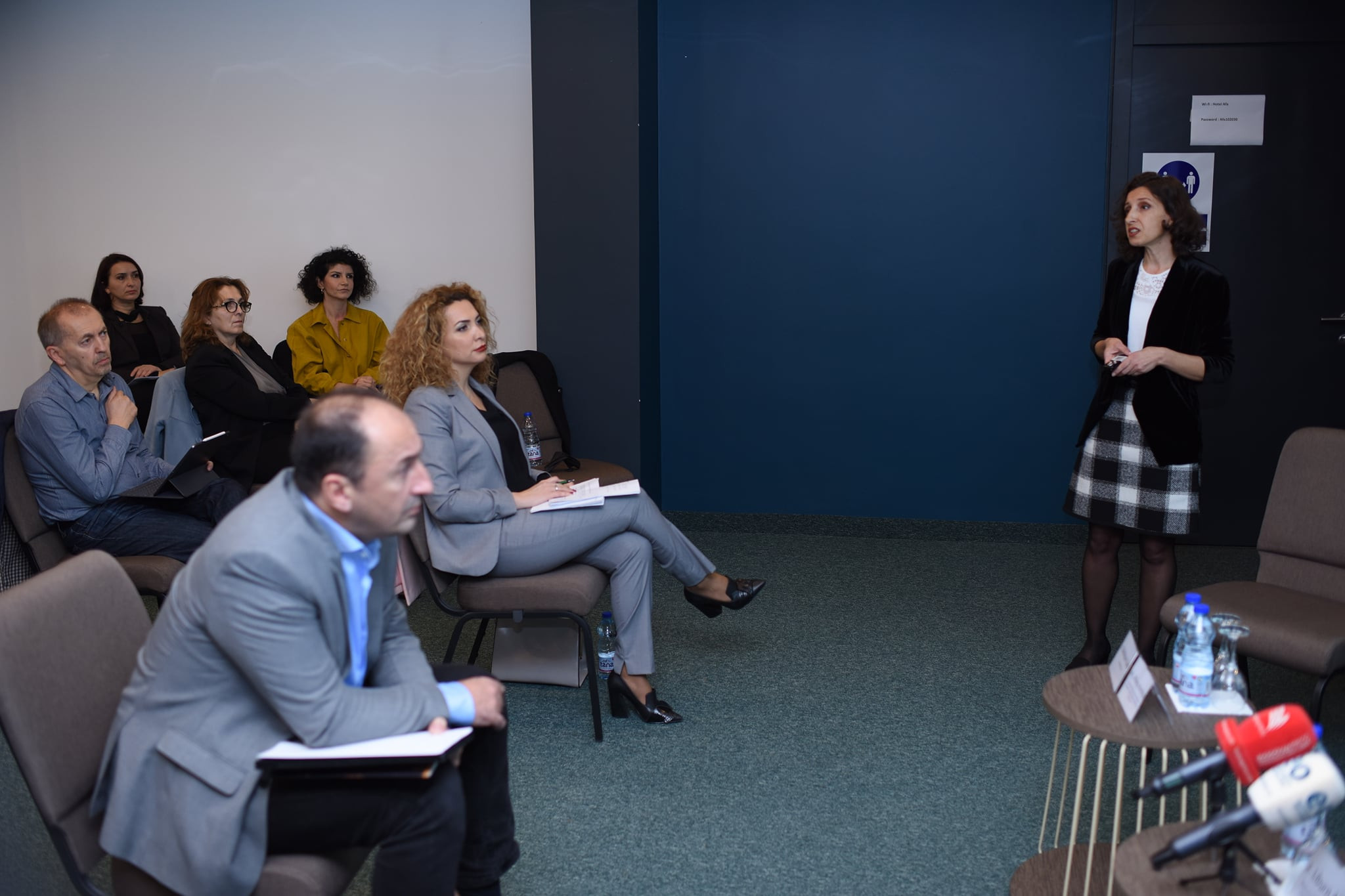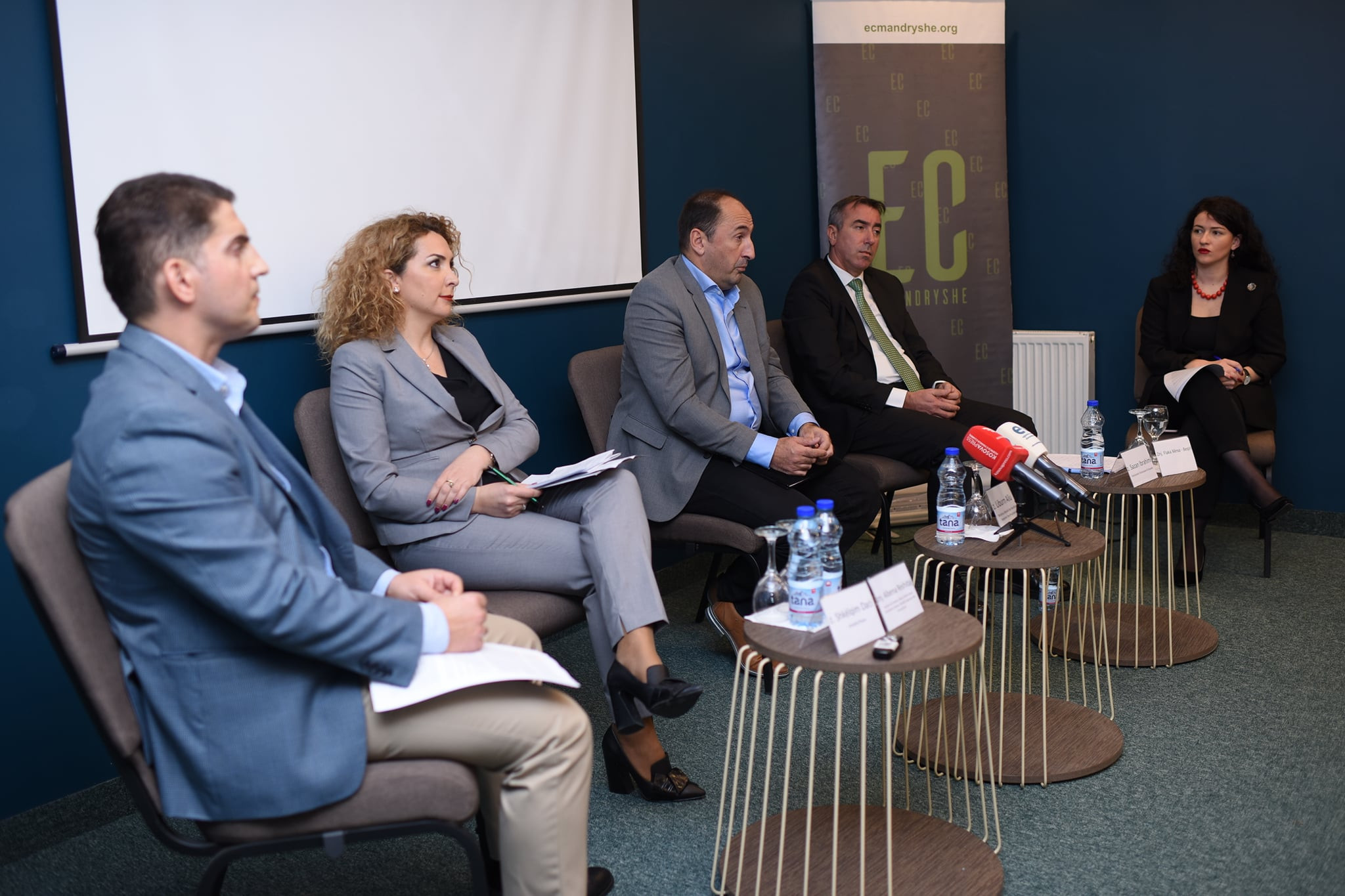Spatial planning in Kosovo with many challenges






The debate organized by EC Ma Ndryshe, in which the presentation of the research "Legal reform of spatial planning of Kosovo at a dead end?!" has highlighted the many challenges regarding legislation and the functioning of spatial planning mechanisms.
In the discussion panel were Mr. Liburn Aliu, Minister of Environment, Spatial Planning and Infrastructure, Mrs. Albena Reshitaj, member of the Parliamentary Committee for Agriculture, Forestry, Rural Development, Infrastructure, Environment and Spatial Planning from the AAK, Mr. Sazan Ibrahimi, Executive Director of the Association of Municipalities of Kosovo, Mr. Shkëlqim Daci, architect and planner and Mrs. Flaka Xërxa Beqiri.
Initially, Mrs. Lumnije Gashi Shabani, author of the research, presented the findings and recommendations of the research. The main purpose of the research is the attempt to address and manage the challenges of spatial development, during the period of 2003-2013. The reform undertaken in Spatial Planning and construction legislation, which was aimed at achieving a higher efficiency in the field of spatial regulation and management, is not achieving the appropriate effect. The improvement of the legal framework is necessary, either through the drafting of a new Law or the revision of the current law and regulations.
In his speech, Mr. Liburn Aliu emphasized that the authorities play an important role in the changes in the legal framework in the field of spatial planning, however, the Ministry does not have a credible mechanism that evaluates these changes in the field of spatial planning. According to Mr. Aliu, Article 18 of this law constitutes the fundamental element that precedes the change that has taken place. "But how did this reform come about? The origin of the new law is doubtful and there is neither legitimacy nor credibility on what basis this change was brought despite the fact that it was voted and approved by a parliamentary majority. The fact of the lack of credible studies and research from this field also shows the great need for the creation of professional authorities that examine all aspects of spatial planning. The concrete solution in practice requires the creation of an independent, credible and professional Spatial Planning Institute within the Ministry, whose role will not only be an observational role but the main components for serious research which will serve to extract clear and credible data from this field. The creation of a database for research that serves the Institute of Spatial Planning, would be the right solution for a multidimensional problem of this nature".
Mrs. Albena Reshitaj further emphasized that there is a great will for cooperation between the Assembly, the Commissions and the Ministry, but that in some cases the lack of political commitment can be seen. Within the Spatial Planning part of the Government Program in the Parliamentary Committee for Agriculture, Forestry, Rural Development, Infrastructure, Environment and Spatial Planning, issues such as: addressing land and expropriation, cadastre, aerial photography of the territory of Kosovo, redesign of the geoportal, the updating of spatial data as well as the development of the application for the management of expropriation data. Mrs. Reshitaj also said that all issues related to spatial planning and environment are examined in the Commission as high priority issues.
Then, Mr. Sazan Ibrahimi, who emphasized the process of drafting and amending laws are processes that take time, somewhere close to a year, and often these laws cannot be amended and therefore return to zero. For this reason, it is highly recommended that the laws drafted in the future from the field of spatial planning be as simple and brief as possible.
Recently, Mr. Shkëlqim Daci, who as a professional in the field shared many problems that arise in practice as a result of the tendency to complicate professional terms and definitions in spatial planning laws. According to Mr. Daci, spatial planning in itself requires a more detailed treatment based on relevant facts and not in the form of superficial treatment, a practice that has been followed up to the present day in terms of the implementation of plans and the control of the development of relevant plans.
After the words of the panelists, it continued with an open discussion among the attendees. Professors from the field of architecture and spatial planning, professionals and experts shared their professional experiences addressing criticisms and recommendations to the relevant institutions. Likewise, it was called that research of this nature be part of public institutions that will serve as official and credible data from experts in different fields, especially from the field of spatial planning.
See research in digital format: https://www.ecmandryshe.org/repository/docs/211105093559_Reforma_ligjore_e_planifikimit_hapesinor_te_Kosoves_ne_qorrsokakr.pdf?fbclid=IwAR3u5FCdjvl_NNPoR-T9NSTk9gew5543Hb-usnK0-GvZviA3vfLt6ZbRuwI_aem_ARtnhy1W2BRkkYdfHeiybPopbAEpl_mXjI3nlPnKGlHqEAAdOEtUNvwt0wOBYBkM0n0z8zxrA6dqVSr9WaJUP3zW




